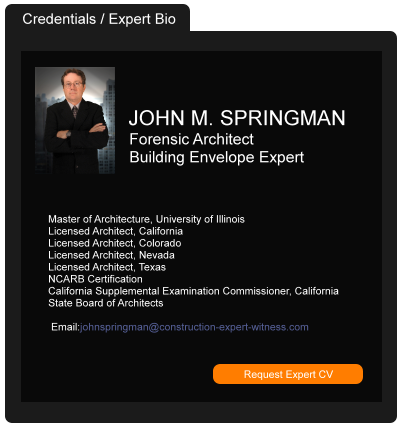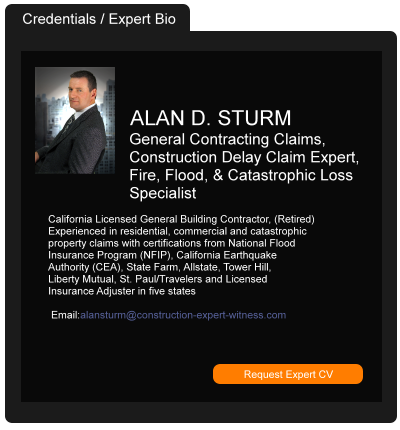As Some States Use the Clean Water Act to Delay Energy Projects, EPA Issues New CWA 401 Guidance
August 26, 2019 —
Anthony B. Cavender - Gravel2GavelIn just the past few weeks, three states have used their Clean Water Act 401 authority to delay, for an indefinite period, FERC-authorized pipeline expansion projects. On May 6, 2019, the Oregon Department of Environmental Quality denied, without prejudice, Jordan Cove’s application for a Section 401 water quality certification. Jordan Cove plans to build an LNG export terminal at Coos Bay, Oregon, if it can obtain the necessary federal and permits. Under Section 401(a) of the Clean Water Act, any applicant for a federal permit to conduct any activity, including the operation of facilities which may result in any discharge into the navigable waters, shall provide the permitting agency a certification from the State in which the discharge may originate that any such discharge will comply with the applicable provisions of the Clean Water Act, including effluent limitations and state water quality standards. The States have a “reasonable time”—which shall not exceed one year after the receipt of the 401 application—in which to act, or the state’s authority may be waived by this inaction. The Oregon DEQ concluded that Jordan Cove has not demonstrated that its project, as presently configured, will satisfy state water quality standards. The 401 applications submitted by Transcontinental Gas Pipe Line Co. (Transco) to the New Jersey Department of Environmental Protection and the New York State Department of Environmental Protection were similarly rejected without prejudice on May 15, 2019 (New York) and June 5, 2019 (New Jersey). This use of the states’ 401 authority has frustrated plans to build and operate LNG pipelines around the country.
Read the court decisionRead the full story...Reprinted courtesy of
Anthony B. Cavender, PillsburyMr. Cavender may be contacted at
anthony.cavender@pillsburylaw.com
Seven Trends That Impact Commercial Construction Litigation in 2021
March 29, 2021 —
Jeffrey Kozek & E. Mitchell Swann - Construction Executive2021 stands to bring sizeable change to the commercial construction industry as trends that had been on the horizon meet the impact of the pandemic. That means it will be even more important for architects, engineers, contractors and owners to prioritize revisiting their project plans as the industry adapts so that they can better reduce their likelihood of facing litigation down the line.
While many in the industry will struggle to react to the ongoing environment, building stronger contractual understanding and preparedness to adapt could be the difference in being able to complete the work and move onto the next project in a timely manner. Meanwhile, contractors are using a wider usage of technologies for improved project communication and efficiency.
In the coming year, there are seven trends will have the greatest impact on commercial construction.
Reprinted courtesy of
Jeffrey Kozek and E. Mitchell Swann, Construction Executive, a publication of Associated Builders and Contractors. All rights reserved.
Read the court decisionRead the full story...Reprinted courtesy of
Court Says No to Additional Lawyer in Las Vegas Fraud Case
October 14, 2013 —
CDJ STAFFLeon Benzer, who has been accused of being one of the masterminds of the Las Vegas HOA scam, has been denied in his bid to add an additional attorney to his publicly-funded defense. Daniel Albregts, Benzer’s court-appointed attorney, made the request due to the large amount of evidence in the case. Federal prosecutors have provided the defense with more than 3.4 million pages of documents. According to U. S. Magistrate Judge George Foley Jr., “defendant’s counsel should be able to prepare and provide an adequate defense with the assistance of appropriate paralegal and other support services.”
Mr. Albregts is currently assisted by Russell Aoki, whose role is that of technical consultant on matters regarding electronic distribution. Federal prosecutors opposed Mr. Albregts hiring Franny Forsman, a former federal public defender. Had Ms. Forsman been hired, the government would have paid $110 per hour for her services. The government is seeking $25 million in restitution from Mr. Benzer.
Read the court decisionRead the full story...Reprinted courtesy of
Department of Transportation Revises Its Rules Affecting Environmental Review of Transportation Projects
December 04, 2018 —
Anthony B. Cavender - Gravel2Gavel Construction & Real Estate Law BlogOn October 29, the U.S. Department of Transportation (DOT) published a final rule in the Federal Register which amends and revises the environmental National Environmental Policy Act (NEPA) procedures rules employed by the Federal Highway Administration (FHWA), the Federal Railroad Administration (FRA), and the Federal Transit Administration (FTA). There is a renewed interest in transportation infrastructure projects, and recent legislation is intended to accelerate required environmental reviews.
Read the court decisionRead the full story...Reprinted courtesy of
Anthony B. Cavender, PillsburyMr. Cavender may be contacted at
anthony.cavender@pillsburylaw.com
Avoiding 'E-trouble' in Construction Litigation
September 10, 2018 —
Judah Lifschitz - Construction ExecutiveDuring the 2016 presidential election, the FBI subpoenaed Hillary Clinton's emails after she used a private email server during her time as Secretary of State. Separately, the more recent investigation into Donald Trump’s campaign policy adviser, George Papadopoulos, resulted in scrutiny over both his email and social media.
As shown the above examples, there are damaging effects of electronically stored information in politics, but how does it impact the construction industry?
If not used carefully and properly, emails will serve as “truth serum” in court. Attorneys can simply read an email to know employees’ thoughts or actions, meaning an impulsive email or social media post will most likely come back to haunt the company. Requests for ESI are inevitable in litigation today and the production of inappropriate emails and other ESI open the door for an opposing attorney to argue that a company fosters a culture of uncouth, unprofessional and unfocused project management.
Reprinted courtesy of
Judah Lifschitz, Construction Executive, a publication of Associated Builders and Contractors. All rights reserved.
Read the court decisionRead the full story...Reprinted courtesy of
Mr. Lifschitz may be contacted at
lifschitz@slslaw.com
Texas Condo Construction Defect Code Amended
September 17, 2015 —
Beverley BevenFlorez-CDJ STAFFAccording to David H. Fisk of Kane Russell Coleman & Logan PC, “Before filing a lawsuit or initiating an arbitration proceeding pertaining to a construction defect, a condominium association in Texas with eight or more units must now comply with the newly added Section 82.119 to Chapter 82 of the Texas Property Code.”
Fisk reported that the new section “requires affected associations to have a licensed professional engineer inspect the units and common elements in question and prepare a written report that (1) identifies the specific units or common elements, (2) describes the present physical condition of the units or common elements, and (3) describes any modifications, maintenance, or repairs to the units or common elements performed by the unit owners or the association.”
Read the court decisionRead the full story...Reprinted courtesy of
Rhode Island District Court Dismisses Plaintiff’s Case for Spoliation Due to Potential Unfair Prejudice to Defendant
September 04, 2018 —
Lian Skaf - The Subrogation StrategistIn Amica Mutual Ins. Co. v. BrassCraft Mfg., Co., 2018 U.S. Dist. LEXIS 88986 (D.R.I. May 29, 2018), the United States District Court for the District of Rhode Island addressed the question of whether the defendant was so unfairly prejudiced by the subrogating insurer’s spoliation of evidence that dismissal of the plaintiff’s case was the appropriate Rule 37(b)(2)(a)(i)-(vi) sanction. The court, focusing on the potential for undue prejudice to the defendant, granted the defendant’s motion to dismiss.
Read the court decisionRead the full story...Reprinted courtesy of
Lian Skaf, White and Williams, LLPMr. Skaf may be contacted at
skafl@whiteandwilliams.com
Comparing Contracts: A Review of the AIA 201 and ConsensusDocs - Part I
March 22, 2018 —
Michael Sams and Amanda Cox – Construction Executive, A publication of Associated Builders and Contractors. All Rights Reserved.Here’s a helpful comparison of and analysis of some important contract sections in the
AIA 201 (2007 and 2017 versions) and
ConsensusDocs (2014 and 2017 versions). While not intended to be all inclusive, this summary comparison of the contract documents will run as a three-part series. Part I covers Financial Assurances, Design Risk, Project Management and Contract Administration. Part II will cover Schedule/Time, Consequential Damages/LDs, Claims and Disputes/ADR. Part III will cover Insurance and Indemnification and Payment.
FINANCIAL ASSURANCES
- What assurances are there that the owner can pay for the project?
- The Contractor should have the right to request and obtain proof that the Owner has funding sufficient to pay for the Work. The provision should also provide that the Contractor may terminate the Contract if the Owner refuses to allow a review of funding documents, or should the Contractor reasonably determine that the Owner does not have sufficient funds to pay for the Work.
Relevant Sections:
- A201 2007 Section 2.2.1; 2017 Section 2.2.1-2.2.2 A201
- 2014 & 2017 ConsensusDocs 200: Section 4.2
AIA:
- Section 2.2.1 A201 2007 & 2017: Both editions require the Owner, upon Contractor’s written request, to provide, “reasonable evidence that the Owner has made financial arrangements to fulfill the Owner’s obligations under the Contract.” Thereafter, the Contractor may only request such evidence if (1) the Owner fails to make payments; (2) a change in the Work materially changes the Contract Sum; or (3) the Contractor identifies in writing a reasonable concern regarding the Owner’s ability to make payment when due. If the Owner does not comply, the Contractor may stop work.
- Additionally, A201 2017 Section 2.2.2 awards costs to the Contractor for demobilization and remobilization.
Reprinted courtesy of
Michael Sams , Kenney & Sams and
Amanda Cox, Kenney & Sams
Mr. Sams may be contacted at mpsams@KandSlegal.com
Ms. Cox may be contacted at ajcox@KandSlegal.com
Read the court decisionRead the full story...Reprinted courtesy of


































































